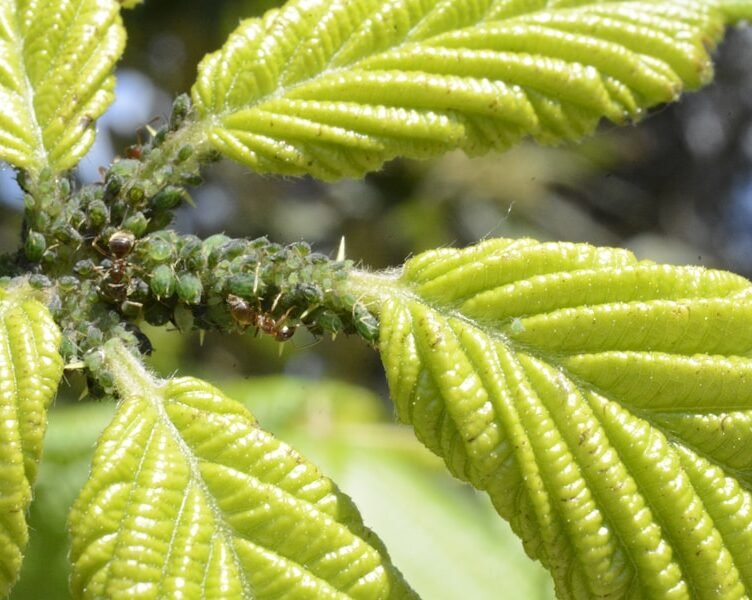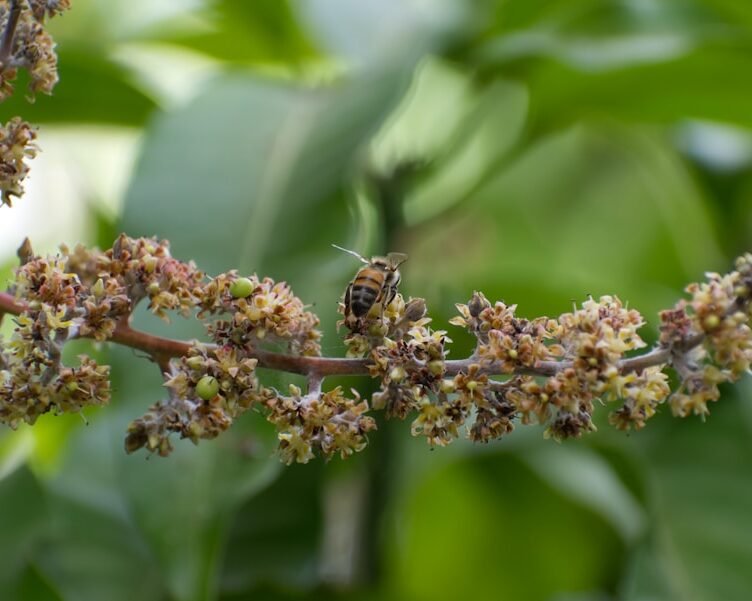In recent years, there has been a surge in interest in natural remedies and alternative medicine, leading many individuals to explore indoor gardening as a means of cultivating their own medicinal herbs and plants. This approach offers a sustainable and cost-effective way to access the therapeutic properties of plants, enabling individuals to take control of their health and well-being by growing and preparing their own natural remedies. Indoor gardening for natural remedies fosters a sense of empowerment and self-sufficiency, allowing individuals to reduce their reliance on pharmaceuticals and synthetic medications.
By growing medicinal herbs and plants at home, individuals can promote a more sustainable lifestyle and develop a deeper connection with nature and the healing properties of plants. Whether it involves cultivating herbs in small pots on a windowsill or creating a dedicated indoor garden space, there are numerous possibilities for incorporating natural remedies into the home through indoor gardening.
Key Takeaways
- Indoor gardening for natural remedies allows for easy access to fresh medicinal plants and herbs at home.
- Choosing the right plants for indoor medicinal gardens is essential for ensuring a successful and effective garden.
- Tips for growing medicinal herbs and plants indoors include providing proper lighting, watering, and soil conditions.
- Harvesting and preparing natural remedies from indoor gardens can be a rewarding and sustainable way to promote wellness.
- Integrating indoor gardening into your wellness routine can create a healing space and promote overall well-being.
The Benefits of Indoor Gardening for Natural Remedies
Fresh and Potent Medicinal Herbs
Indoor gardening offers a constant supply of fresh and potent medicinal herbs and plants. This ensures that the natural remedies are at their most effective, as they are harvested and used immediately.
Optimal Growth and Health Benefits
Indoor gardening provides a consistent and controlled environment for growing medicinal plants, allowing for optimal growth and health benefits. This controlled environment enables individuals to cultivate medicinal plants that thrive and provide maximum health benefits.
Therapeutic and Stress-Relieving Activity
Indoor gardening for natural remedies is not only beneficial for physical health but also has a positive impact on mental and emotional well-being. The act of tending to plants and watching them grow can be incredibly rewarding and calming, providing a sense of purpose and connection to nature.
Choosing the Right Plants for Indoor Medicinal Gardens
When it comes to indoor gardening for natural remedies, it is important to choose the right plants that are suitable for growing indoors. Some popular medicinal herbs and plants that thrive in indoor environments include lavender, chamomile, peppermint, aloe vera, and basil. These plants are relatively low-maintenance and can be grown in containers or small pots, making them ideal for indoor gardens.
It is also important to consider the specific health benefits and uses of each plant when choosing which ones to grow indoors. For example, lavender is known for its calming and relaxing properties, while peppermint is often used for digestive issues. By selecting a variety of medicinal plants with different healing properties, individuals can create a diverse indoor garden that caters to their specific health needs.
Tips for Growing Medicinal Herbs and Plants Indoors
| Plant | Indoor Growth Time | Harvest Time | Yield |
|---|---|---|---|
| Lavender | 8-10 weeks | 12-14 weeks | 1-2 oz per plant |
| Peppermint | 10-12 weeks | 14-16 weeks | 2-3 oz per plant |
| Chamomile | 8-10 weeks | 12-14 weeks | 1-2 oz per plant |
Growing medicinal herbs and plants indoors requires some basic knowledge and care. One important factor to consider is the amount of sunlight that each plant needs. Most medicinal herbs thrive in bright, indirect light, so it is important to place them in a location where they can receive adequate sunlight throughout the day.
Additionally, it is essential to provide proper drainage for the plants by using well-draining soil and containers with drainage holes. Another important aspect of indoor gardening for natural remedies is maintaining proper humidity levels. Many medicinal plants prefer higher humidity, so it may be necessary to mist the plants regularly or use a humidifier in the indoor garden space.
It is also important to water the plants consistently, allowing the soil to dry out slightly between waterings to prevent root rot.
Harvesting and Preparing Natural Remedies from Indoor Gardens
Once the medicinal herbs and plants have reached maturity, they can be harvested and prepared into natural remedies. Harvesting should be done at the right time of day when the plant’s essential oils are at their peak, typically in the morning after the dew has dried. The harvested plant material can then be dried or used fresh to create various natural remedies such as teas, tinctures, salves, and essential oils.
The process of preparing natural remedies from indoor gardens involves careful attention to detail and proper techniques. For example, when making herbal teas, it is important to steep the herbs at the correct temperature and for the appropriate amount of time to extract their medicinal properties. Similarly, when making tinctures or salves, it is crucial to use high-quality carrier oils and alcohol to ensure the potency and effectiveness of the natural remedies.
Integrating Indoor Gardening into Your Wellness Routine
Nurturing a Deeper Connection with Nature
By caring for medicinal herbs and plants, individuals can develop a deeper understanding of the natural world and its ability to heal. This connection can lead to a greater sense of respect and appreciation for the environment, as well as a more holistic approach to health.
Mindfulness and Self-Care through Indoor Gardening
Integrating indoor gardening into a wellness routine provides an opportunity for mindfulness and self-care. Taking the time to tend to plants and create natural remedies can be a meditative practice that promotes relaxation and stress relief. It also encourages individuals to slow down and be present in the moment, which can have positive effects on mental clarity and emotional balance.
A Holistic Approach to Health and Wellness
By incorporating indoor gardening into a wellness routine, individuals can adopt a more comprehensive approach to health that addresses physical, mental, and emotional aspects. This can lead to a greater sense of overall well-being and a more balanced lifestyle.
Creating a Healing Space with Indoor Medicinal Gardens
Indoor gardens filled with medicinal herbs and plants can also serve as a healing space within the home. By creating a dedicated area for indoor gardening, individuals can design a tranquil and nurturing environment that promotes health and wellness. This can be achieved through thoughtful placement of plants, incorporating natural elements such as water features or stones, and using aromatherapy with essential oils.
The healing space created with indoor medicinal gardens can be used for various wellness practices such as meditation, yoga, or simply as a peaceful retreat from daily stressors. It provides an opportunity for individuals to connect with nature and find solace in the healing energy of plants. Additionally, having a designated healing space within the home can serve as a reminder to prioritize self-care and make time for personal well-being.
Exploring the Science Behind Indoor Gardening for Natural Remedies
The practice of indoor gardening for natural remedies is not only rooted in tradition and holistic medicine but also supported by scientific research. Numerous studies have demonstrated the health benefits of medicinal herbs and plants, including their anti-inflammatory, antioxidant, and antimicrobial properties. These studies have shown that many medicinal plants contain bioactive compounds that have therapeutic effects on various health conditions.
Furthermore, research has also shown that indoor gardening itself can have positive effects on mental health and well-being. The act of caring for plants has been linked to reduced stress levels, improved mood, and increased feelings of happiness. This suggests that indoor gardening for natural remedies not only provides tangible health benefits through the use of medicinal plants but also contributes to overall wellness through the act of gardening itself.
In conclusion, indoor gardening for natural remedies offers a wealth of benefits for individuals seeking alternative approaches to health and wellness. From cultivating medicinal herbs and plants to creating healing spaces within the home, indoor gardening provides an opportunity for individuals to take control of their health in a sustainable and holistic way. By integrating natural remedies into their wellness routines, individuals can cultivate a deeper connection with nature and gain a greater appreciation for the healing properties of plants.
Whether it’s growing lavender for relaxation or harvesting peppermint for digestive support, indoor gardening for natural remedies offers endless possibilities for promoting health and well-being.
FAQs
What is indoor gardening for natural remedies?
Indoor gardening for natural remedies refers to the practice of growing medicinal plants and herbs indoors, typically in pots or containers, to use for various health and wellness purposes.
What are the benefits of indoor gardening for natural remedies?
The benefits of indoor gardening for natural remedies include easy access to fresh medicinal plants, the ability to control growing conditions, and the satisfaction of growing your own natural remedies at home.
What are some common medicinal plants and herbs that can be grown indoors?
Common medicinal plants and herbs that can be grown indoors include aloe vera, lavender, peppermint, chamomile, and basil, among others.
What are some tips for successful indoor gardening for natural remedies?
Tips for successful indoor gardening for natural remedies include providing adequate light, water, and nutrients for the plants, choosing the right containers and soil, and monitoring for pests and diseases.
How can the plants grown through indoor gardening be used for natural remedies?
Plants grown through indoor gardening can be used for natural remedies in various ways, such as making teas, tinctures, salves, and essential oils, or simply using the fresh or dried herbs directly.





